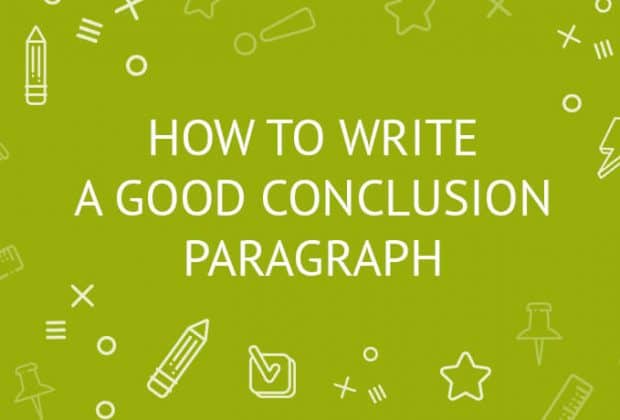College professors and high school teachers often ask their students to write essays. This happens mostly because essays are a very special task. Essays show not only students’ knowledge on the topic, but also their ability to analyze, summarize, and reason. They distinguish several essay types, like persuasive, descriptive, analytical, comparison, and a few others. An Tips on Writing Essay Conclusion is a structured piece of writing. It usually has an introduction, two or three body paragraphs, and a conclusion. In the introduction you should present your thesis, each of the body paragraphs presents an argument. The conclusion, being a very important part of an essay, rounds up everything. How can you make your conclusion exceptional?
What Makes a Good Conclusion
Blogger Ann Blair from the custom research paper writing service claims that during communication people usually remember the last thing that was told. This stresses the importance of a good conclusion. It can’t save your essay if your thesis and arguments are poor, but it can make your essay sparkle, even if your arguments aren’t very strong. Firstly, it’s necessary to clarify what the aim of the conclusion is. It should show the reader the development of your points from the beginning of the essay to its end. The conclusion aims to connect all the author’s main points. The conclusion should prove the importance of the presented arguments. At the same time, it has to provoke further thoughts on the issue or inspire some actions. The Tips on Writing Essay Conclusion should be connected with the introduction showing the development of the ideas. After reading the conclusion the readers should feel that they know more about the issue than they do after reading the introduction. Let’s consider some dos and don’ts essential for writing a strong conclusion.
- Your conclusion should be structured. In its topic sentence, you need to rephrase your thesis and show again its importance. Then in a few supporting sentences, it’s necessary to present again the main points of your paper. The concluding sentences should give the reader the sense of completeness of your whole essay.
- Don’t repeat your introduction in the conclusion. The reader of your essay has already read your introduction and can re-read it again if he/she wants to. It’s also a bad idea simply to repeat your arguments. Instead, your conclusion should show the development of your points. It’s necessary to re-phrase your arguments and show why they matter. You should mention only major points.
- Connect your conclusion with the introduction lexically or/and synthetically. Use in your conclusion a phrase or a structure that was specific in your introduction.
- Don’t introduce new arguments or proof in the conclusion. Your conclusion is a summary of your arguments presented in the body paragraphs. It’s not the place to develop new ideas.
- Use a rhetorical question or a quotation that might provoke further thoughts, a discussion, or taking some actions. You can also warn your readers as to the possible consequences of not taking action.
- Don’t use any summarizing phrases, like “summing it up”, or “in conclusion”. It’s mostly about the style of your essay. Besides, remember, that you might be limited by the number of words, so rather write something important than useless introductory words.
- Take your time to work on the conclusion of your essay. This part of the essay might need additional proofreading and revising. There is a good chance that you will need to re-write it several times.
- Don’t excuse for not mentioning something or use phrases that can make your arguments less strong. Claiming that you aren’t an expert or that there is no clear answer to the problem, will make your points less strong.
- Use the same tone in your conclusion as in other parts of your essay.
Writing an essay isn’t an easy job. Every part of an essay is important and has several specific features. The conclusion is the most essential part and it’s not easy to write. To write a good conclusion you should be able to summarize your ideas and rephrase your writing. These skills should be trained, so don’t overestimate your abilities and take your time to re-write your conclusion if necessary to improve it. The proverb says that practice makes perfect. If you want to write well, just write.
Read Full Article




